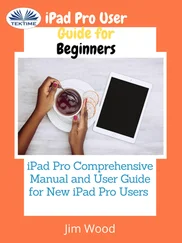The history of financial speculation is beautifully documented in C. Kindleberger, Manias, Panics, and Crashes: A History of Financial Crisis (London: Macmillan, 1978).
He also earned large sums for King’s College, Cambridge, whose investment portfolio he was in charge of as the bursar (financial manager) between 1924 and 1944.
Michal Kalecki (1899–1970), with his Marxist influence and interest in developing economies, and Nicholas Kaldor (1908–86), who had one foot in the Developmentalist tradition and who was, having been brought up in the Austro-Hungarian Empire, no stranger to the ideas of the Austrians and Schumpeter, were exceptions in this regard.
Veblen also tried to understand the changes in society in evolutionary terms, drawing inspiration from the then new theory of Charles Darwin.
The heavyweight John Commons (1862–1945), whose work had affinity with the school, explicitly declared his membership of the school in the mid- 1920s. John Maurice Clark (1884–1963), the son of John Bates Clark, was another important, younger, figure.
Most members of the NIE accept the ‘self-seeking’ part of the ‘rational self-seeking individual’ assumption of the Neoclassical school, but most of them (not necessarily an overlapping set with the former ‘most’) reject the ‘rational’ part. Some of them, especially Williamson, even explicitly employ the Behaviouralist concept of bounded rationality, which sees human rationality as severely limited.
There is also an unacknowledged influence from the Marxist school (North was a Marxist in his young days), at least in terms of the subject matter, such as property relations (North and Coase) and the internal workings of the firm (Coase and Williamson).
Simon was the last Renaissance Man, as I call him in Thing 16 of my book, 23 Things They Don’t Tell You about Capitalism . He made path-breaking contributions not just in economics but across many fields. He was one of the founding fathers of artificial intelligence (AI) and of Operations Research (OR, a branch of business administration). He also wrote one of the classics in the field of public administration ( Administrative Behaviour , published in 1947) and was a leading scholar in cognitive psychology. So he knew a thing or two about how people think and act.
Some Neoclassical economists have tried to reinterpret bounded rationality so that it fits into optimization models. Some argue that bounded rationality simply means that we need to see economic decision as the ‘joint-optimization’ of resource costs (a traditional Neoclassical concern) and the costs of decision-making. In another common reinterpretation, people are seen to optimize by choosing the best decision rules, rather than trying to make the right choice in every decision instance. Both these reinterpretations in the end do not work because they assume even more unrealistic levels of rationality than the standard Neoclassical model does. How can agents that are not even rational enough to optimize on one front (resource costs) optimize two (resource costs and decision costs)? How can agents that are not smart enough to make rational decisions on individual occasions design decision rules that will allow them to make optimal decisions on average?
H. Simon, The Sciences of the Artificial , 3rd edition (Cambridge, MA, The MIT Press 1996), p. 31.
In saying this, I am simplifying the relationship between people’s economic position and the ideas they support; Warren Buffet, George Soros and plenty of other rich people have supported policies that would harm them personally. And I am certainly exaggerating the degree to which money and power can influence ideas. Nevertheless, it is important to recognize that the individualist vision of the economy has not become dominant purely on its intellectual merit.
The data on intra-firm trade are hard to come by. Intra-firm trade is, at 20–25 per cent, estimated to be less important in services than in manufacturing. But in certain ‘producer services’, such as consulting and R&D, it is even more important than in manufacturing; in the case of US and Canadian firms, for which detailed data are available, it was in the region of 60–80 per cent. The data are from R. Lanz and S. Miroudot, ‘Intra-firm trade patterns, determinants and policy implications’, OECD Trade Policy Papers no. 114 (Paris: OECD, 2011).
MCC also has nearly 150 subsidiaries that are not cooperatives and over 10,000 workers who are not employee-partners. The sales revenue includes those of these subsidiaries.
Some estimates that include stock options – whose values are not easy to calculate – say that it could be over 1,000 times.
Precisely for this reason, the first anti-trust law of the US (the Sherman Act of 1890) actually treated trade unions as anti-competitive ‘trusts’ – until the provision was dropped in the revised anti-trust law of 1914, called the Clayton Act.
The fact that Walmart, the biggest private sector employer in the US, employs only about 1 per cent of the US labour force (1.4 million people) puts the number in perspective.
The most important regional multilateral banks are the Asian Development Bank (ADB), the African Development Bank (Af DB) and the Inter-American Development Bank (IDB).
The European Union (EU) derives its power from a mixture of money and rule-setting power. As seen in the recent ‘rescue’ packages for the ‘periphery’ countries, like Greece and Spain, some of its influence is through its financial power. But more important is its ability to set rules on all aspects of economic (and other) life in its member countries, including budget, competition among firms and working conditions. EU decisions are made on the basis of ‘qualified majority voting’ (QMV), in which votes held by each country reflect their population size but only up to a point, in a manner analogous to the distribution of electoral college votes for US presidential election among the fifty states of the US. In the Council of the European Union, Germany has ten times more votes than Malta (twenty-nine against three votes), but it has a population more than 200 times bigger (82 million v. 0.4 million).
The ILO is quite different from other UN organizations. While other UN bodies are intergovernmental organizations, the ILO is a tripartite body, made up of governments, trade unions and employers’ associations, with 2: 1: 1 distribution of votes between the three groups.
There are a number of experiments that show that economics students are more selfish than others. Part of it may be the result of ‘self-selection’ – hearing that economics education today emphasizes the predominance of self-seeking, selfish people are more likely to feel that it is their kind of subject. But it may also be the result of education itself – being taught all the time that everyone is out to promote himself/herself, economics students may get to see the world more in that way.
There is a huge amount of evidence, well presented in accessible form in books like Peter Ubel’s Free Market Madness , George Akerlof’s and Robert Shiller’s Animal Spirits and the psychologist and 2002 Nobel Economics laureate Daniel Kahnemann’s Thinking, Fast and Slow .
Читать дальше












